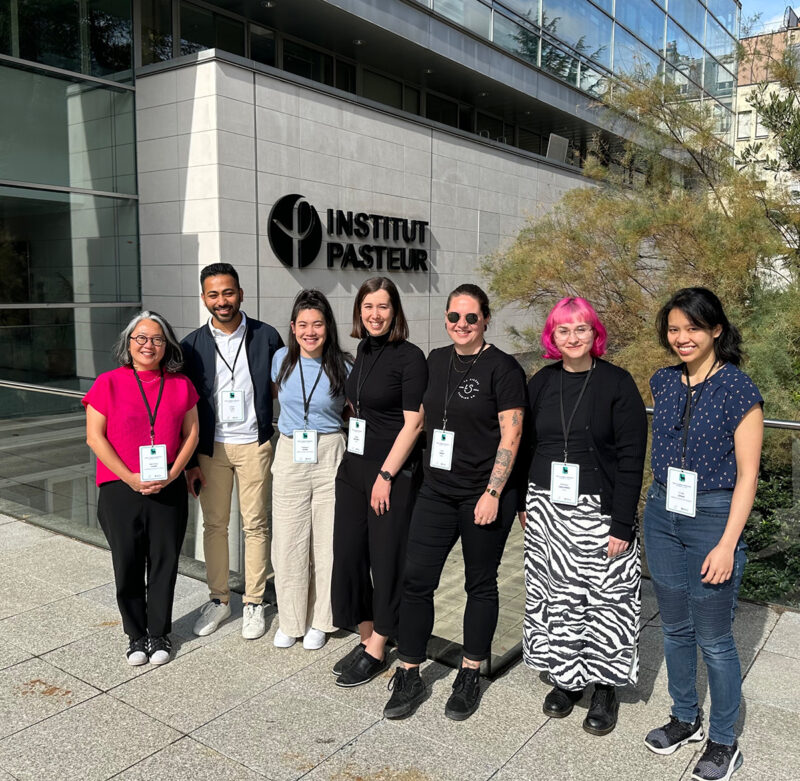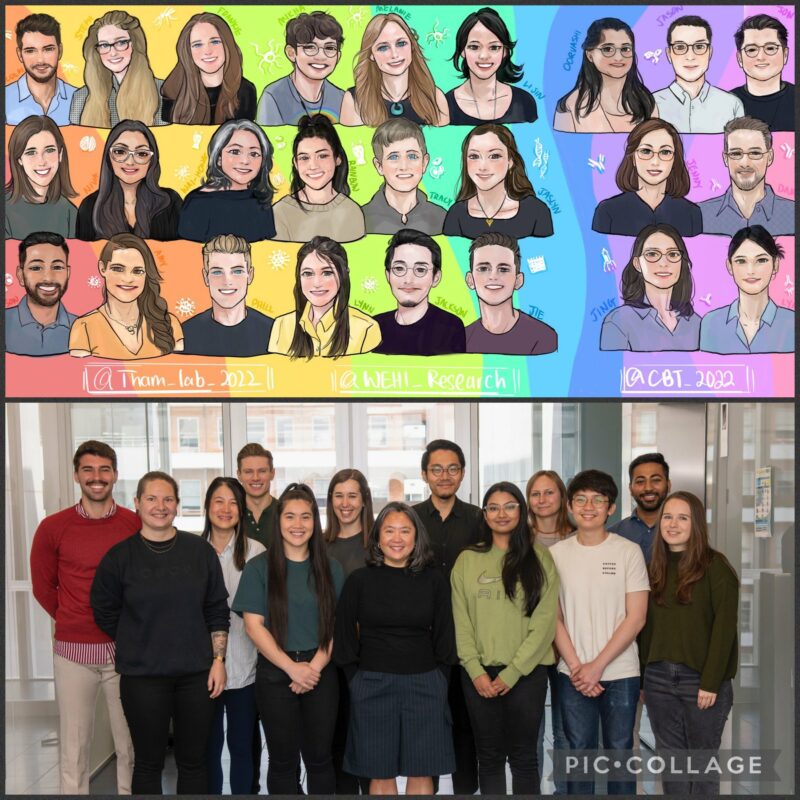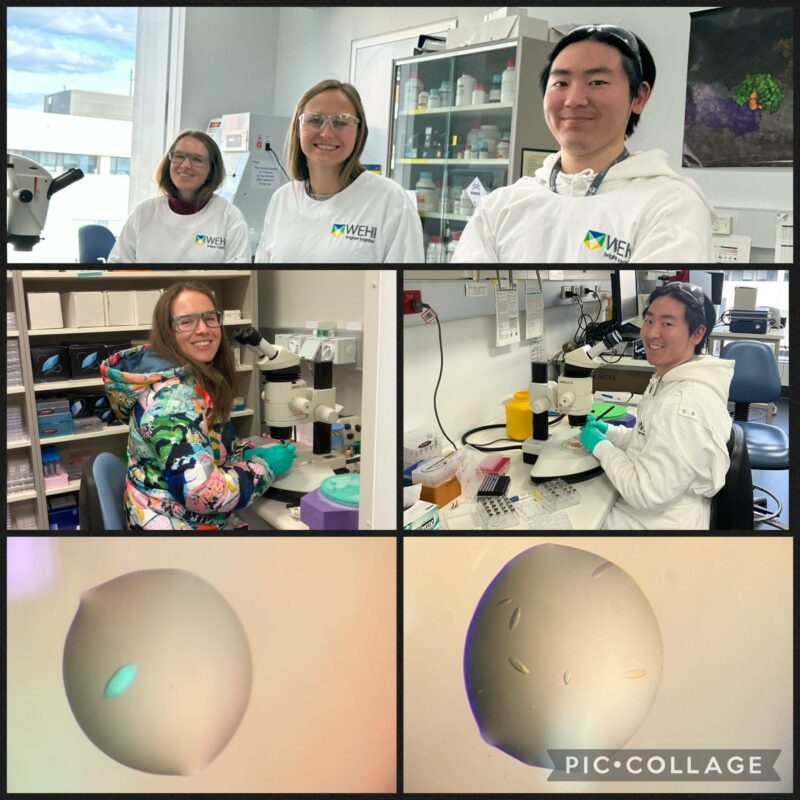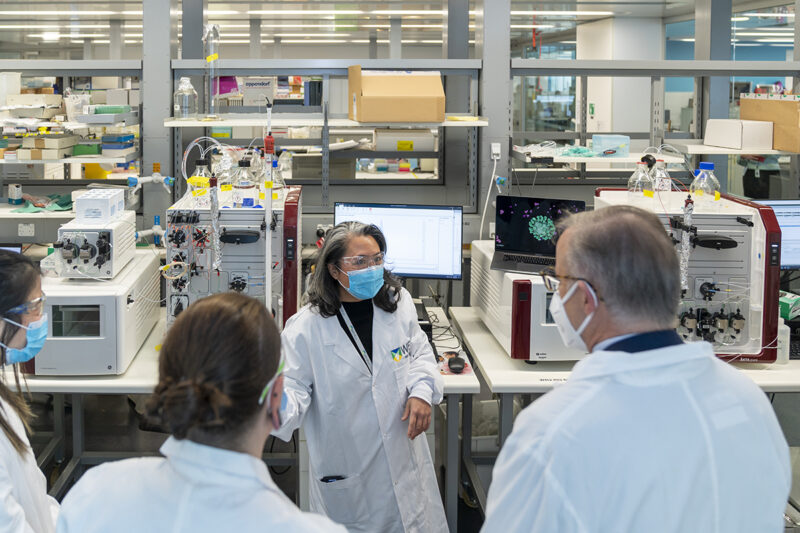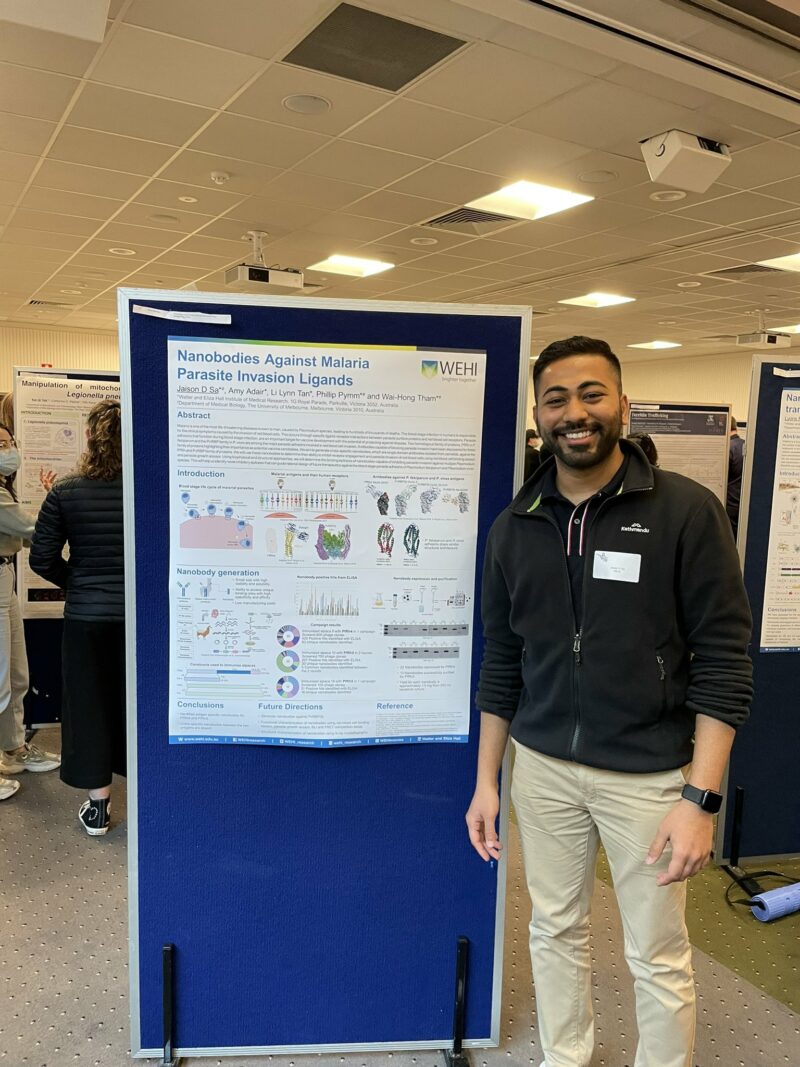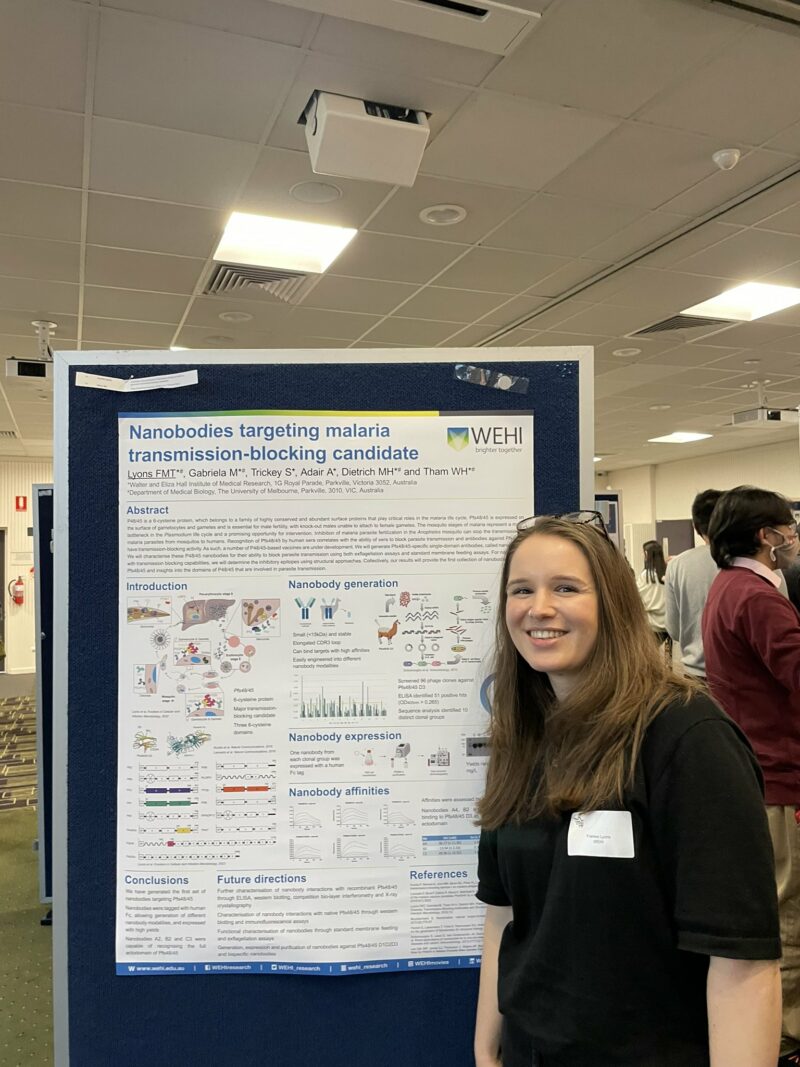Malaria remains one of the world’s deadliest parasitic diseases. Our team’s research has made fundamental discoveries in novel host-pathogen interactions and examined their molecular and structural mechanisms to drive rational design of new therapies against malaria.
The Tham lab studies parasite adhesins required for entry into human red cells, parasite surface proteins that bind to human complement proteins for immune evasion and novel parasite proteins involved in fertilisation in the mosquito.
Our work intersects with the fields of structural biology, nanobody technology, immuno-epidemiology and molecular parasitology. The overarching aim is to rationally design and generate new inhibitors or antibodies that block these interactions and stop recurrent malaria infection in humans and block transmission from mosquitoes.



